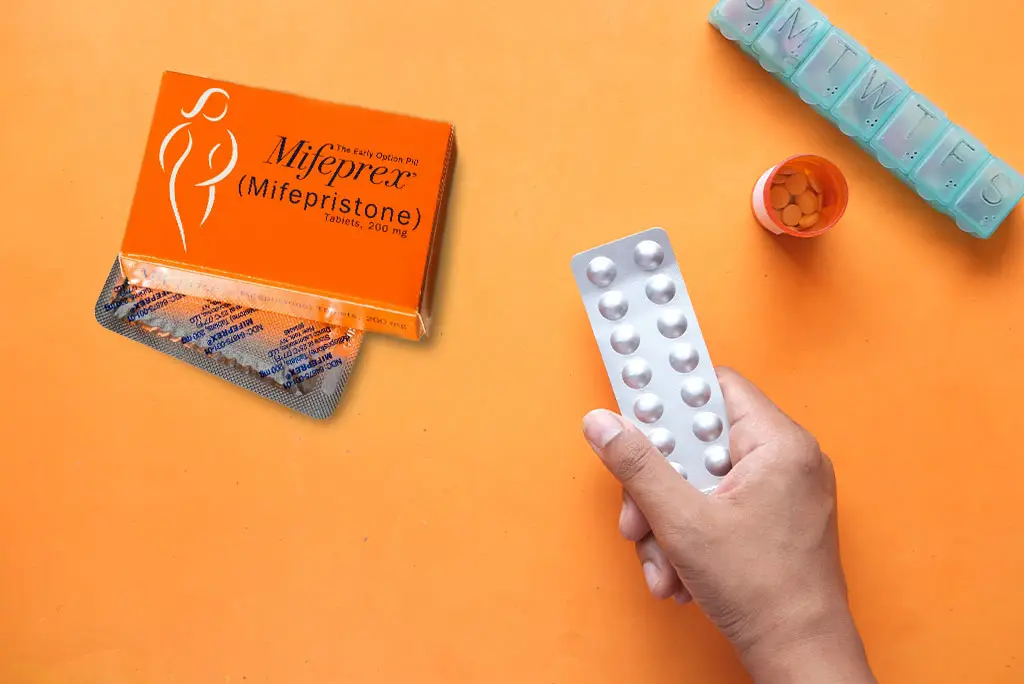Supreme Court Justice Samuel Alito has ordered to keep the abortion pill, mifepristone, available by mail delivery and without tighter restrictions until at least late Friday night. Last week, Justice Alito granted an emergency motion by the Justice Department and Danco Laboratories. The Mifeprex brand-name drug’s distributor temporarily overruled the limitations placed on mifepristone by the federal courts until Wednesday at 11:59 p.m. However, he did not provide a reason for the delay.
Background of the legal battle over mifepristone
The availability of mifepristone has been the subject of conflicting rulings by two separate federal courts. One ruling, issued by U.S. Judge Matthew Kacsmaryk of the Northern District of Texas, suspended the FDA approval of the abortion pill mifepristone and all subsequent decisions the agency had taken to regulate the medication. However, the U.S. Fifth Circuit Court of Appeals partially blocked Kacsmaryk’s order a few days later, keeping the FDA approval in effect but imposing severe restrictions on how mifepristone is used and distributed. In another decision, U.S. Judge Thomas Rice of Washington’s Eastern District banned the FDA from limiting mifepristone’s accessibility in 17 states and Washington, D.C.
Mifepristone and its Significance in the US
Mifepristone is a medication used to terminate a pregnancy. It is often used in combination with misoprostol. In the U.S., healthcare providers use this combination as the most prevalent pregnancy termination method. It constitutes around 50% of all abortions, according to the Centers for Disease Control and Prevention and the Guttmacher Institute.
Concerns raised over Kacsmaryk’s ruling
The Justice Department, former FDA employees, and the pharmaceutical industry stated in court filings that Kacsmaryk’s decision was significant. The federal court had invalidated an FDA finding that the medicine was safe and effective for the first time. The Fifth Circuit Court of Appeals partially overturned Kacsmaryk’s decision. The limitations on the pill’s use include banning postal delivery of the medication, requiring doctor visits for receiving the prescription, and limiting its use to the seventh week of pregnancy.
The court also prohibited the distribution of the generic version of mifepristone made by GenBioPro. GenBioPro supplies roughly two-thirds of the medication to the U.S. market.
Controversies surrounding abortion pill mifepristone and its approval
The Alliance Defending Freedom, a pro-life organization, sued the FDA for approving mifepristone. They petitioned the Supreme Court to uphold the limitations on the drug. They claimed that the limitations offer patients the safeguards they need. The Justice Department and Danco Laboratories contended that the lower court rulings would remove mifepristone from the market for several months. They argued that the FDA needs time to adjust the medication’s labeling to comply with the appeals court order. They contended that this would deprive many women of access to an FDA-approved drug. A drug that is a safe and effective alternative to surgical abortions. Anti-abortion groups claim that the FDA’s approval of mifepristone was illegal. Also that the drug is not safe. Former FDA officials, medical associations, the pharmaceutical industry, several members of Congress, and 23 American states dispute these claims.
Reactions to the lower court rulings
A group that included Pfizer, biotech executives, and investors informed the Supreme Court that upholding the lower court rulings would harm the FDA’s credibility regarding scientific safety and efficacy review. According to former FDA officials, if the rulings stand, it would open the agency to litigation. This could cause competing drug companies or individuals claiming side effects to take treatments off the market.
Why is the abortion pill mifepristone controversial?
Mifepristone, also called RU-486 or the abortion pill, is a medication that blocks the hormone progesterone, which is essential for pregnancy growth. When used with another medication called misoprostol, mifepristone can induce an abortion during the early stages of pregnancy. Following thorough clinical testing and regulatory evaluation, the FDA authorized mifepristone in the U.S. in 2000.
However, mifepristone has become a target for anti-abortion groups and lawmakers who aim to restrict access to abortion. They argue that the medication is dangerous and can lead to severe complications. For instance, infection, excessive bleeding, or incomplete abortion. People use mifepristone for ‘off-label’ purposes, including later abortions, which the FDA does not approve.

